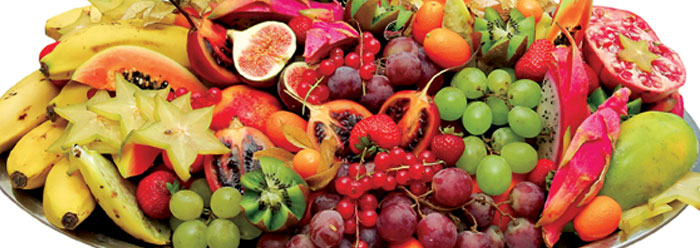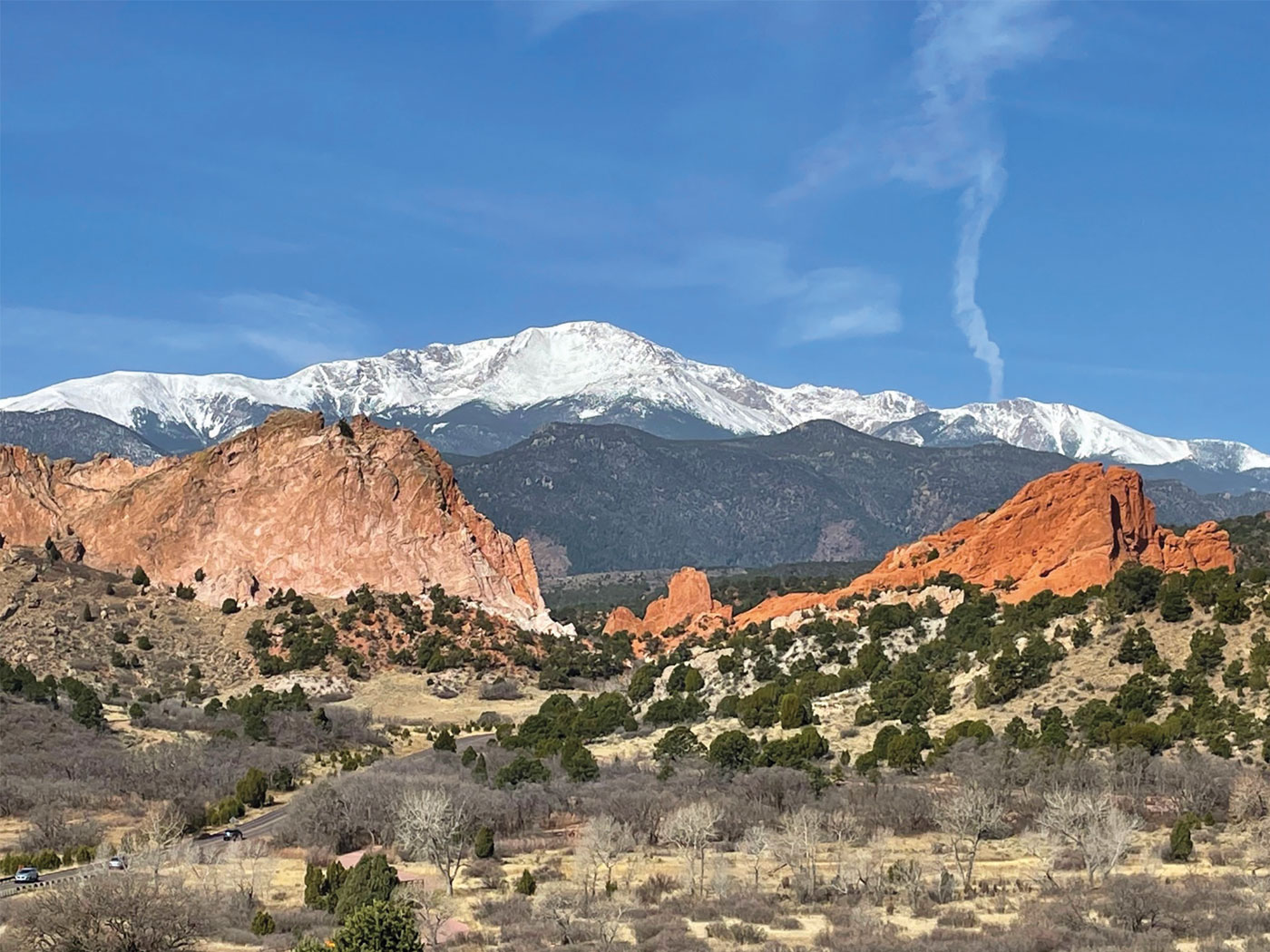Sometimes the proof that God is our Creator comes in the form of a potato, or lingonberries, or cheese, or eggs, or a codfish. Each type of food is a witness to God’s providential care. The meals consumed over a human lifetime offer a huge quantity of proof, from a huge pantry of witnesses!
God never leaves Himself without a truth witness
Food provides strong evidence of God’s wisdom and power as our Creator, as well as His goodness in providing for fallen mankind’s physical needs. In fact, the Bible teaches that the providentially programmed production of all food, anywhere and everywhere on earth, is itself a continuing proof that God is a caring Creator. The apostle Paul taught this:
And saying, Sirs, why do ye these things? We also are men of like passions with you, and preach unto you that ye should turn from these vanities unto the living God, which made heaven, and earth, and the sea, and all things that are therein: Who in times past suffered all nations to walk in their own ways. Nevertheless he left not himself without witness, in that he did good, and gave us rain from heaven, and fruitful seasons, filling our hearts with food and gladness. (Acts 14:15-17, emphasis added)
Think about God’s providence and how it is displayed on earth.
God has demonstrated His immeasurable glory by His many acts of providential care for His creatures, especially humans and animals. Yet some of what God provides is so commonplace that it is routinely ignored, although that ignorance cannot negate the overwhelming proof of God’s providence.
Consider just two of those providential care evidences named above by the apostle Paul: fruitful seasons and food. Both of these blessings provide an ongoing benefit for God’s favorite creature, mankind.
The apologetics of fruitful seasons
Since the Flood, God’s historic providence in providing a dependable cycle of annual seasons has been routine.
While the earth remaineth, seedtime and harvest, and cold and heat, and summer and winter, and day and night shall not cease. (Genesis 8:22)
If the "reawakening" of plant life during spring were to occur only once in a human’s lifetime, the wonder of it all would (and should) be recognized as an immense miracle, so majestic and clever that billions of words could not do justice to describe it.
God planned for fruitful trees to provide food for humans, generation after generation, as a long-term renewable provision that was to be considered more important than the immediate activities of any one generation, a resource to be protected even during crises such as military activities. (See Deuteronomy 20:19-20; notice that food availability for multiple generations is also planned for in Deuteronomy 22:6-7.) This reproduction-driven multi-generational provision was preprogrammed by God, with each fruit’s biogenetic reproductive capacity written within its seeds, as Genesis taught from the beginning.
And God said, Let the earth bring forth grass, the herb yielding seed, and the fruit tree yielding fruit after his kind, whose seed is in itself, upon the earth: and it was so. And the earth brought forth grass, and herb yielding seed after his kind, and the tree yielding fruit, whose seed was in itself, after his kind: and God saw that it was good. (Genesis 1:11-12, emphasis added)
Thus, "fruitful seasons" are a positive proof of the providential care of our Creator.
The apologetics of food
Likewise, God’s provision of an amazing diversity of foods…around the world, in every age, in every culture, to every people group…is proof positive that God is Creator. Food is absolutely necessary to prolong our physical life.
Why? As a result of Adam’s sin, death entered the human race (Romans 5:12). God’s warning to Adam indicated a double-death penalty: "To die thou shalt die" (Genesis 2:17, which includes an infinitive-imperfect "double verb" in the Hebrew text).
Sin immediately triggered a relational break between Creator and creature, because God is holy. That relational break was a spiritual death, a separation from God that Paul called being "dead in trespasses and sins" (Ephesians 2:1).
Also, sin triggered an ongoing process of dying physically…what some scientists call "chemistry eventually wins out over biology"…so our human bodies die. Before birth, even from the time of conception, our physical bodies are dying, yet the metabolic profit we gain from eating food postpones and prolongs that dying process. (If you doubt food’s necessity, try abstaining from eating for two months!)
In some humans, physical life is prolonged by food for more than a century. But, in time, the condition of mortality takes its toll and we all anticipate death, even if we eat every day. Food only postpones the inevitable. But while it does, it is a life-sustaining fuel, an amazing and precious gift from our Creator,1 as well as a testimony to the amazingly complex and efficient world He designed:
Plants use biological systems that harvest light energy from the sun to convert environmental water and carbon dioxide into tiny carbon/hydrogen energy units stored within them. When people eat those energy units, the extraordinary human digestive and metabolic systems convert the work of plants into energy that is useful to people and give back water and carbon dioxide to the environment that can be used by plants.…
In this amazing process that powers the human body, nuclear fusion energy in the sun is converted and conveyed as light energy to the earth, where it is captured and converted by plants to food-stuffs, then digested by a person and metabolized to universal energy packets that can be converted to chemical, mechanical, and electrical energy as needed. The information content behind all of this is truly staggering. The conversion of sunlight to body energy involves all systems of the body, plus a few plant systems, which must be totally functional. Credit belongs to the Lord Jesus Christ…the creative genius! The Lord is gracious to all people by freely giving the sun’s light energy, the vital biological systems of plants, and humans’ incredible digestive and metabolic systems.2
God has also acted in human history, in the lives of human beings, in ways that so tellingly reveal His intervention that to fail to recognize God’s providential involvement is morally and intellectually inexcusable. No random "chance" could provide a satisfactory explanation for the results of God’s providential care, and the proof is everywhere for those with eyes to see, even in every bite we eat. No wonder we are obligated to give thanks to God for our food.3
Food helps to prove that Jesus rose from the dead
In fact, even the eyewitness proof of the Lord Jesus Christ’s bodily resurrection was accentuated by His eating solid food (such as fish and honeycomb), demonstrating that He was physically raised from the dead.4
No one…man or woman, boy or girl…who has ever eaten a meal, and benefited metabolically from doing so, can honestly say, "God gave me no witness of Himself, so how was I supposed to know He was my Creator?"5
So, the proof is in the pudding…as well as in every other form of food that God provides for us, whether potato, lingonberry, cheese, egg, or codfish.
References
- Gillen, A. L., F. J. Sherwin and A. C. Knowles. 1999. The Human Body: An Intelligent Design. St. Joseph, MO: Creation Research Society Books, 53-58.
- Guliuzza, R. 2009. Made in His Image: From Solar Energy to Human Energy. Acts & Facts. 38 (3): 16.
- See 1 Timothy 4:1-5, especially verses 4-5. See also 1 Corinthians 10:31. Obviously, we should have spiritual food…God’s Word…as well, on a daily basis. See Deuteronomy 8:3, quoted by Christ Himself in Matthew 4:4.
- See Luke 24:33-51, especially verses 41-43, reporting that soon after resurrecting from the dead, Jesus ate broiled fish and honeycomb before a group of eyewitnesses.
- Johnson, J. J. S. 2010. Misreading Earth’s Groanings: Why Evolutionists and Intelligent Design Proponents Fail Ecology 101. Acts & Facts. 39 (8): 8-9.
* Dr. Johnson is Associate Professor of Apologetics at the Institute for Creation Research.
Cite this article: Johnson, J. J. S. 2011. Our Daily Bread: How Food Proves God’s Providence. Acts & Facts. 40 (4): 8-9.

















